Fiction
Nonfiction
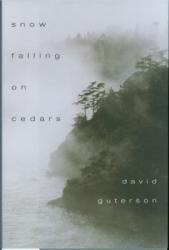
This was an amazingly written book with a centralized focus on a piece of history that is rarely paid much attention to. Focusing on the false trial of Kabuo Hiyamoto for murder, a Japanese-American man living on San Piedro Island, the book discusses prejudices harbored against Japanese people after WW2 and internment camps and tackles the idea of what is socially acceptable vs. what is morally correct. Guterson's writing style flows well and reads like an easygoing narrative, leaving most of the inferences and questioning to be made about morals to the reader. It questions human nature and the role of justice in vengeance, and leaves us wondering ourselves about humanity, with mixed feelings of both disgust at some of the characters and hope for the future.
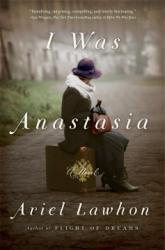
This dual-timeline story novel twists and turns until you are racing to the finish line. It tells the story of the Romanov family from the point of view of Anastasia. You travel with her from the revolution in 1917 to the family's assassination in July 1918. At the same time, you meet an elderly Anna Anderson, who is still trying to prove that she is the surviving Grand Duchess Anastasia. Anna's story is in reverse so as you are reading, she is moving back through her travels, various sponsors, lawsuits, and incarceration. The two stories meet at the end, solving the mystery as to what exactly happened to Grand Duchess Anastasia. The author is a beautiful writer and you will be transfixed by the story, no matter how well you know history! Another great title from Ariel Lawhon (if you haven't read her previous title, Flight of Dreams which is about the Hindenburg, I highly recommend it!).
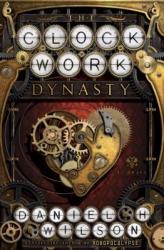
f there's anything Daniel H. Wilson is good at, it's writing about robots. In his latest book, The Clockwork Dynasty, he takes a steampunk approach by setting the book, not in the future, but in the present and distant past. Returning to the origins of robots via the automatons created for the entertainment of the wealthy and royal, Wilson has crafted another workable piece of fiction centered on robots. Unfortunately, as is the case with some of this other writing, I didn't like a few of his stylistic choices.
The Clockwork Dynasty jumps back and forth between flashbacks and "present era" actions, which can sometimes be distracting, especially if one of the storylines is particularly interesting at the time. I almost wonder if there could have been a better way to focus on the action in the present and to reveal the details of the past in more of a "show" instead of the "tell" provided via flashbacks. Additionally, I get why some of the violence was present in this book, but it (along with the few moments of obscenity or sex) seemed a little unnecessary.
One of my other qualms with this book was with the audiobook itself. Since the individuals reading each of the sections were different between the past and the present, it did help to know where I was in the story. However, the male voice of the past was a little quieter than the female voice of the present. This meant I turned up the volume each time the story was in a flashback, only to scramble to turn it down when the timeframe switched. Some volume leveling would have made this book a little less difficult to listen to, is all I'm saying.
A steampunk story by the modern master of robot stories, I give The Clockwork Dynasty 3.0 stars out of 5.
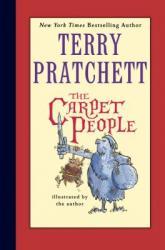
Having now read one of Terry Pratchett's books, I thought it might be interesting to go back and read his very first work. Many authors don't manage to become famous with their very first book, and I think Terry Pratchett is no exception here. The Carpet People is an amusing book with his standard British charm, but I think it never goes far enough in its exploration of the idea. After all, I was expecting this book to be more along the lines of The Borrowers instead of just a straight-up fantasy with a few references to the fact that these creatures lived in the carpet.
Part of the problem I seemed to have with this book was the incessant need for fantasy books to create new names for objects and creatures that already (mostly) exist. If you took away the carpet setting, I think this book could be practically indistinguishable from any other fantasy book. This is what disappointed me the most. I believe there are plenty of potential moments to highlight the size disparity between creatures that live in the carpet, and the rest of the world we're familiar with (a la Honey, I Shrunk the Kids (1989)).
Granted, I will give this book some grace considering that Terry Pratchett originally wrote it when he was a teenager. For this reason alone, I do have to say that it should be an inspiration for young writers, just to show that it can be done. Pratchett clearly improved his writing skills over time to become a bestselling author, but it's important to recognize and realize that he didn't start out that way. Ironically enough, though, I almost preferred the serialized version of this story that he originally wrote over the more "standard" version that aligns with his later styles.
An amusing book and impressive first novel for a teenage Terry Pratchett, I give The Carpet People 3.0 stars out of 5.
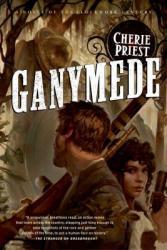
Now that I’ve read the first three books in the Clockwork Century series, any hope I had of some cohesive narrative is essentially gone. While following a new character for each book helps to provide a different setting of the steampunk alternate universe, when I know these characters won’t matter outside their own books, I kind of stop caring about them. Even previous heroines are relegated to cameo and minor character status as the persistent series of somewhat pointless events drags on. And don’t even get me started on the zombies, which are a distraction to any actual story in my opinion.
I think the main problem I have with these books is the fact that things happen without much lead-up or foreshadowing. Sure, there are some fascinating factors involved with making a submarine work in the Civil War era, but the resulting battle and conclusion went exactly as I expected them to. This isn’t foreshadowing as much as it is conforming to clichés. There doesn’t seem to be much at stake in any of the character arcs, which is made all the more prevalent by the relatively uninteresting characters themselves. Some have distinguishable quirks, but they all feel flat in a world that could be that much more interesting.
As for the “twist” near the end involving one of the characters, I feel it was poorly executed, let alone unnecessary. Considering the medical techniques at the time, even in an alternate universe, the individual in question probably didn’t have the necessary “assets” to convincingly pull this deception off. If anything, it was only hidden via clothing, but since there were no hints or foreshadowing about this surprisingly minor character, I had no way to even know if anything was off to begin with. I can believe that some of them might exist in that timeframe, but it just felt like a cheap add-in for the sake of “inclusion.”
Another steampunk book in a series that isn’t going anywhere, I give Ganymede 2.5 stars out of 5.
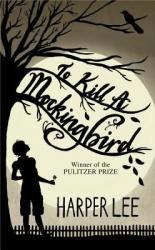
To Kill a Mockingbird by Harper Lee is an amazing story with important underlying themes. I really enjoyed this book. I read To Kill a Mockingbird on my own and then in class, which only made me appreciate the book more. The book explores controversial issues such as prejudice, racism, what it means to be a woman/lady, and growing up, which are all still relevant in today’s society. However, this is not a book for people who enjoy eventful/plot driven stories. To Kill a Mockingbird is more of a character-driven story (in my opinion). Harper Lee’s usage of symbolism, language and setting add to the enjoyment of the book. I could not recommend this book enough. To Kill a Mockingbird is a thought-provoking and classic book that everyone should read before they die.
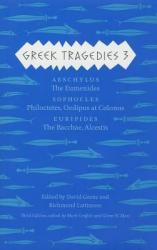
Oedipus at Colonus is part of Sophocles’ Athenian tragedies trilogy called the Oedipus plays. Oedipus at Colonus picks up after the events of Oedipus Rex and follows Oedipus’ life after his exile from Thebes. He starts off wandering in strange lands with his daughter, Antigone, trying to find out where they are. A citizen tells them that they are in Colonus, a sacred Athenian city. The King of Colonus, Theseus, comes to see Oedipus, and Oedipus asks Theseus if he can take refuge in Colonus in exchange for eternal prosperity for his city. Oedipus’ second daughter, Ismene, arrives and informs them that Oedipus’ two sons, Polynices and Eteocles, are planning to go to war with each other for the throne. Oedipus asks for refuge in Colonus, as he knows his sons will come for him due to a prophecy that was told: The city that Oedipus is buried in will forever have good fortune. Oedipus promises that if Theseus offers him his trust and protection, he will bring fortune to Colonus by being buried within its confines. Theseus agrees and him and Oedipus form a great bond. With Oedipus’ death nearing and the conflict in Thebes increasing; Antigone, Ismene, and Theseus must figure out how to solve the situation of Thebes as long as ensure Colonus’ security. I love Sophocles’ Oedipus plays because it connects history with tragedy and makes for one of the most revered plays for its age, dating back to 401 BC. I read the plays using the Dover Thrift Editions as their translations are the easiest for me to grasp and understand.
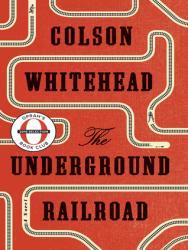
I listened to this book on audio, so I'm sure I missed bits and pieces. Cora's life as a slave in Georgia and through her journey on the underground railroad was fascinating. The depiction of the underground railroad as actually being an underground railroad was odd to me, but I'm sure there's some symbolism or other literary device that escapes me. Probably the most interesting part of this book was the section that took place in North Carolina. It was so indicative of the Third Reich that it was chilling. I found the ending to be abrupt, but still overall an interesting read.
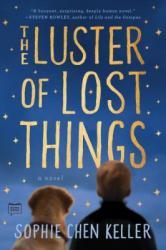
Dreamlike magical realism which combines beautiful prose and thoughtful insight into a young boy's life with a motor speech disorder and the shadows cast by the disappearance of his father. An enchanting read for fans of Alice Hoffman and Sarah Addison Allen.
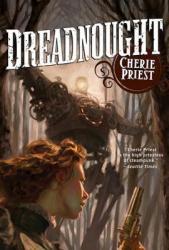
For the most part, the book series I have read progress the story from one book to another. I get that there are some series with the same character in different predicaments for each book, but jumping from one character to another in each different book is an interesting tactic. Of course, I’m somewhat guilty of this, as The Fluxion Trilogy focuses on different characters for each book. As far as I can tell, The Clockwork Century series also does this, even if the connections between the characters are flimsy at best. Even so, the plot seemed to take a step backward from Boneshaker to Dreadnought.
One of my qualms with Boneshaker was that there wasn’t a lot of world-building that established what this alternate-reality Seattle was like in the scheme of the broader United States. Dreadnought solves this problem by giving the main character an opportunity to travel across the country, thus establishing some of the world-building in the process. In fact, there were a few points where I wondered if I had picked up the first book in the series, only to confirm that Dreadnought was the second book. Unfortunately, I thought the plot of Boneshaker was a little more believable since the cross-country trek in Dreadnought seemed like an obvious ploy by the author to introduce the world to the reader.
I certainly appreciated the thinking that went into the consequences of a decades-long Civil War, but I still think the “zombie” angle of this series seems out of place. I get that steampunk is the combination of some more modern technologies in a Victorian era, but the zombie genre seems so modern that combining the two never really gelled for me. Plus, through the plots of two books, I feel like I’m no closer to understanding where the gas that creates the zombies originates, or if there’s even an endgame to the zombie situation.
A book that should have come first in the series, I give Dreadnought 3.5 stars out of 5.
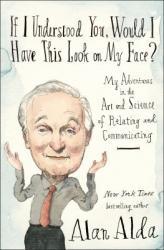
***THIS BOOK WAS RECEIVED FROM A GOODREADS GIVEAWAY***
While miscommunication might be the source of conflict for romantic comedies, it’s a much more significant problem in the real world. If people aren’t able to efficiently and accurately communicate with their fellow man, then we all have room for improvement. Scientists and doctors are often the worst offenders, even though their ideas need to be communicated to the world for the advancement of society. Alan Alda has spent years trying to figure out why people are unable to communicate, and he has also figured out what we can do to improve this situation. As a scientist and writer, I feel many of his insights have merit.
I grew up watching Alan Alda on Scientific American Frontiers, so I know how often he has interacted with scientists. His conclusions that we can all become better communicators through empathy and understanding of our audience makes sense. I dabbled in improvisational theatre a little in college as I was studying to earn my Masters in Mechanical Engineering. Having first-hand experience of successfully improvising, I always touted its benefits for technical professions. Now I know why. When we synchronize with others, our message has a much better chance of being communicated.
As if to prove his point, this book is not necessarily a scientific account of the research, but merely a personal (and relatable) set of anecdotal stories that should open people’s eyes to the potential communicators trapped within each of us. We all have to communicate on some level, whether it’s orally or written, so if we can all improve our communication skills by learning to empathize with others, maybe society could one day be able to hold civil and vigorous debates without instantly devolving into mud-slinging contests.
A must-read for anyone who communicates (i.e., everyone), I give If I Understood You, Would I Have This Look on My Face? 5.0 stars out of 5.
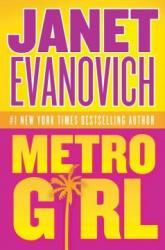
I can honestly say, this is the worst book I have read in 2018. I couldn't believe it was written by Janet Evanovich. It lacked her usual wit and laugh out loud moments. I actually thought I would love it since I enjoyed the graphic novel. But no. I didn't care about any of the characters.
I thought the story line plodded along and at the end, I just didn't care. I was hoping a canister of nerve gas would just destroy every copy of this book so no one else who's thinking of reading will suffer.
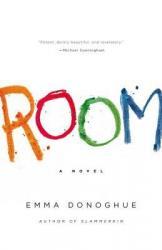
Room is from the point of view of a five year old boy named Jack whose mother was kidnapped seven years ago by a man he only knows only as "Old Nick". They've been imprisoned in a shed in his backyard ever since. To spare Jack from the horror of the situation, his mother doesn't tell him Old Nick is actually his father and that some things he sees on the TV, his only link to the outside world, are real. As a result, Jack believes that the only true reality is Room. Their tried-and-true daily routine starts to change as Jack becomes more curious about the outside world and his mother starts to hope again. This book is an incredible and moving read that will make you rethink parenting and your perspective on the world and I would highly recommend.
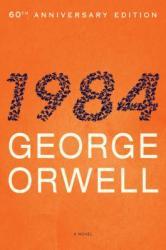
Although the year 1984 has long since passed, the reality created in Orwell’s novel 1984 contain aspects that our society is beginning to show. 1984 follows a society where the world is ruled by 3 superstates: Oceania, Eastasia, and Eurasia, each of which have a totalitarian english socialism government. The government of Oceania has surveillance on every citizen through monitors called telescreens that enable them to hear and see what every person is doing and every citizen is required to have a telescreen in
their homes. This enables them to see if the citizens are committing “thoughtcrime” and if they are, the thought police kidnap the person and erase them from existence. Winston Smith is our main character with a quiet rebellion against the totalitarian government of Oceania. He believes that he is an individual and should be allowed to have his own freedom. As Winston tries to avoid being erased from existence and maintain a romance with the love of his life Julia, the government slowly closes in on his treason. This is one of my favorite novels and a masterpiece by Orwell as it shows how a society with a controlling government creates fear and false order for the citizens. Aspects within the novel are present in our own government today, so who is to Orwell’s predictions aren’t slowly but truly becoming a reality.
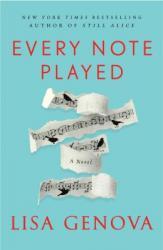
As with all of this authors' novels, this book was beautifully written. I honestly didn't like either of the main characters in the beginning, but as they came to accept the changes in their lives and atone for wrongs they committed to each other I felt more and more empathy for what they went through. This disease is absolutely awful and it is painful to read about its progression, but I'm glad Ms. Genova continues to shed light on illnesses such as this in a way that is accessible. Highly recommended (unless you are feeling blue, then you might want to try something a little lighter!).
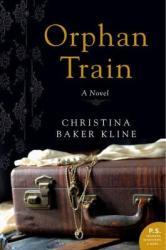
"Orphan Train," a touching novel featuring the life stories of orphans in the mid 1900's, explores the importance of friendship and the need for human belonging. This book is a novel that you will remember for awhile. It is also a quick read; a page turner leaving you completely satisfied. This novel is well-written and excitement awaits every chapter. Vivian Daly is orphaned at a young age and is sent away on the famous 'orphan train.' The book unfolds her story; but in between a new character is introduced. Molly Ayer, a girl who needs to do service hours to earn her reputation back, meets Vivian and they instantly connect. Both women tell their stories, and each are left well educated and have a new friend. "Orphan Train" emphasizes the innocence of children and how society's actions can impact the lives of those innocent children. This book is available in a young reader's format, "Orphan Train Girl", which is better adapted for a younger audience. "Orphan Train" does include a few inappropriate scenes; mostly sexually. If you love a historical novel, touching reads, and a tremendously good book, "Orphan Train" is for you.
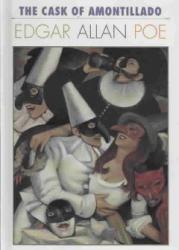
This isn’t a full length book but rather a short piece of writing - the first I read of Poe’s but by far the most entertaining. The piece is set in an unnamed Italian city during the Carnival season and depicts the protagonist, Montresor, inviting Fortunato, a former friend, to a wine tasting in his cellar. Fortunato previously insulted Montresor and this invitation isn’t one of forgiveness, but revenge. The language isn’t difficult to understand as most pieces from the 1800's are and there isn’t any research needed to be done beforehand in order to read this piece. The Cask of Amontillado possesses a dark, morbid theme which is entertaining depending on the audiences interests, for example, if increasingly horrifying character behavior is something that surprises you. I felt a range of emotions from suspicious to terrified throughout the piece and if there are any audiobooks you can get your hands on, that definitely assists in terms of establishing a more realistic setting. When I listened to the audiobook, echoes of their voices and droplets of water dripping from the ceiling of the damp cellar were included to contribute to an overall eeriness.
Reviewer Grade: 11
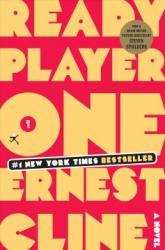
I don’t know where to start with this review because there are a lot of different elements of the novel to discuss. The reason why I rate Ready Player One four out of five stars instead of five out of five is the overwhelming amount of 80's references mentioned in literally every line that honestly only further bored the audience. The references to Star Wars, Indiana Jones, Back to the Future, Dungeons & Dragons and more were tolerable because they were iconic - something an individual born 20 years later still understands. Then, Cline writes paragraphs on Atari consoles and Black Tiger or Joust games which just isn’t relate-able for the majority of the audience the novel is targeting (which is why I assume the director replaced the Joust scene with a car race in the movie). But the dominant issue with Cline’s writing is not even necessarily the amount of references but the fact that he explains every single one. At some points, I thought about how I might’ve read a Wikipedia article for the same informational effect. There are plenty of plot twists to contribute to a surprising manner regarding both the characters and the video game - I was never bored with the plot. Ready Player One is one of the many futuristic dystopian sci-fi novels everyone in this generation reads - which is why the 80's references bothered me. I don’t think this is the type of novel most adults born in the 60's or 70's are going to read, yet Cline tries to appeal to them anyway.
Reviewer Grade: 11
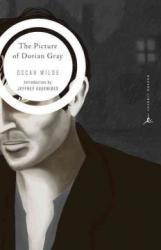
I read this novel on a whim - I had never read any of Wilde before and did not know too much about him as an author apart from the fact he was put on trial and imprisoned during his life. The Picture of Dorian Gray was thoroughly surprising and unexpected. Dorian Gray, at the beginning of the novel, is perceived by Basil Hallward as an individual worth obsessing over, he is infatuated with him and without knowing Dorian yet, the reader is too.
But then the reader is introduced to him physically and I realized he isn't all that. He's almost pompous but somehow clever and he's beautiful. Both Basil and his friend Lord Henry Wotton are influenced to see him more positively by that but I think the fact that Dorian is not tangible to the reader allows us to see him for who he truely is. According to Lord Henry, beauty is worth more than genius is, depicting which friend he prefers over the other. I wanted to sympathize with Basil because he was more sensitive than the others and I felt pity for him as I realized he was not a character anyone particularly cared immensely for. I preferred Basil over both Henry and Dorian because Henry's beliefs appeared rather traditionalist and were more controversial than common and the fact that Dorian was supposed to be a character without any fault was already a warning for me. Honestly, from the title, I did not know what direction the novel was going in from any point during the reading. To clear a few things up, Basil is an artist who paints a portrait of Dorian because he appreciates him in a more aesthetic manner than others who enjoy his company but the portrait appears to change into something more demonic as time goes on symbolizing how awful Dorian was becoming as a person. I mean, I needed to stop reading for a few minutes because I could not believe how little Dorian cared for others but I will admit that the absurdity of it all was entertaining. There is a lot of murder in this book which definitely makes the novel more interesting but then I guess I should also mention not get too attached to some characters.
Reviewer Grade: 11
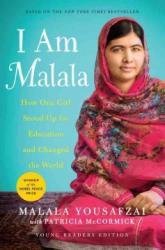
"I Am Malala" was a pretty great book, and is now one of my personal favorites. It did not take me long to read and is good for anyone ages 12+.
This book does contain some sensitive contents and might not be great for younger kids, unless the parents are okay with harsh and sad topics in the Middle East. The book does not contain a whole lot of content on what goes on in that area of the world, and it mostly focuses on Malala and her story.
Malala is a young teen from the Swat Valley in Pakistan. She was raised peacefully, but the Taliban soon started to take over the area. The Taliban started like a little seed, but grew into a giant weed that basically controlled everything. They eventually made it so girls were not allowed to go to school, and women were not aloud out of their house unless they are accompanied by a male relative. Malala would not put up with this, for she has a desire to learn and know answers to her questions. She is the daughter of the principal of her school, and grew up admiring the students that attended. After surviving a bullet to the head, months in the hospital, and a move to England, Malala becomes activist and stands up for girl's rights and her belief that everyone has the right to go to school. I liked this book because Malala is a great role model and author. She really provides a strong figure for any girl growing up in this hectic world. This is definitely one of the best books I have read and I am sure I will read it again in times to come. Any girl (or boy) can relate to Malala because she described herself as being an ordinary girl that wanted to see change in the world. She shows that anyone can adjust their view on the world if they just use their voice to speak out. I absolutely suggest this book to someone if they are looking for a fairly quick read!
Reviewer Grade: 7


